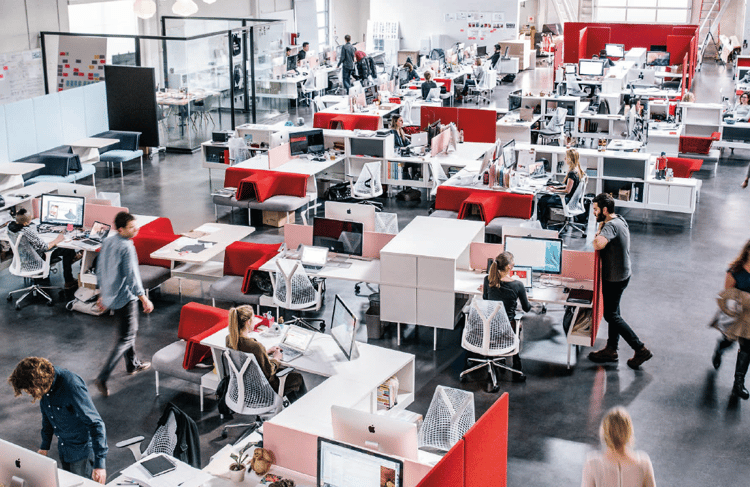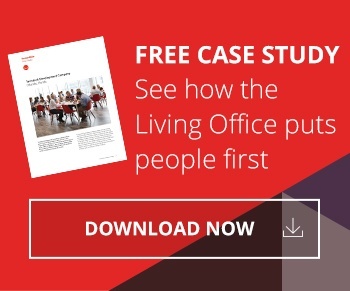George Nelson, Herman Miller's former design director famous for the marshmallow sofa (among other iconic funriture pieces), said:
"Design is a response to social change."
Today, work is social. And smart companies know that workspaces are business tools that reinforce your core values and reflect your culture and brand.
That's why several years ago, industry leader Herman Miller starting asking questions about why we work the way we do. They wondered, if we left all preconceptions behind, what management, methods, tools, and workplaces would look like if we started fresh. The furniture icon met with a lot of companies and completed mass amounts of research. It ultimately led to an understanding that our biggest asset is our people. Tools like technology advance all the time and make work more efficient, but people drive how we use it. No matter how modern offices look or are configured, it's your people who define problems, imagine the ideas, and conceptualize and implement solutions. People make the world (and work) what it is.
 It was from this revelation that the idea of the Living Office was born, as were its four areas of focus:
It was from this revelation that the idea of the Living Office was born, as were its four areas of focus:
- a human-centered point of view on work and workplaces that helps people/organizations prosper
- a placemaking framework to deliver these kinds of places
- a diverse portfolio of furnishings and tools for provisioning them
- services that enable their creation and livelihood
When we apply these four focus areas to our own spaces and people, we start to fully recognize people's holistic needs and enable them to do their best work. It's as if the space is truly "alive."
Perhaps the most important thing to know is the Living Office centers on meaning. Much like Simon Sinek's Start With Why method, it's an optimistic view of being inspired to do great work and feel good doing it. The Living Office disowns the idea that work is about a paycheck. It's a broader conversation/concept about why people do work, understanding engagement and/or inspiration more holistically, and how organizations can inspire their people to harness their passions and apply it to a greater purpose.




Comments